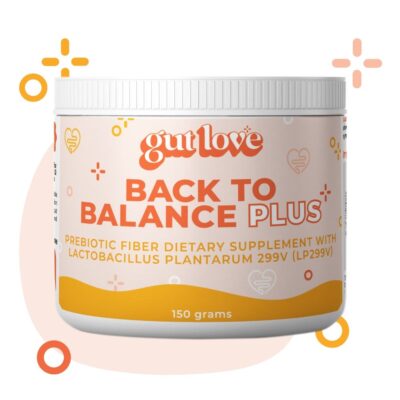Protein is all the buzz on social media, during lunch break discussions, and on a lot of people’s minds! Protein is a key player in our diets, but for those living with Ulcerative Colitis (UC), getting enough protein isn’t just about #gains—it’s about supporting healing and maintaining strength.
In this blog, we’ll explore why protein is essential for individuals with Ulcerative Colitis, how much you might need, why it’s important, and how to practically meet your needs through food—even during a flare.
Why Protein Matters for Ulcerative Colitis
Protein is one of the three macronutrients your body requires daily, and it plays a role in everything from muscle repair to immune support. But for people with UC, its role is even more critical.
Ulcerative Colitis is an inflammatory condition of the colon that can increase the body’s demand for protein. Whether you’re recovering from a flare, healing from inflammation in the gut lining, or experiencing medication side effects (like muscle loss from corticosteroids), protein becomes a vital nutrient for recovery.
One of the most common types of malnutrition in IBD is protein-energy malnutrition—when your body doesn’t get or absorb enough protein to meet your needs. This can contribute to fatigue, loss of lean body mass, and long-term muscle wasting, also known as sarcopenia.
Getting enough protein with UC helps:
- Support gut tissue healing
- Preserve and rebuild muscle
- Strengthen the immune system
- Regulate inflammatory responses
While muscle building gets a lot of attention online, for people with UC, protein is more about preserving health, energy, and resilience throughout all phases of the disease.
So, what are the protein needs in Ulcerative Colitis?
Great question—it depends on your weight, your disease state (flare or remission), stage of life, activity levels, and your individual goals.
Protein needs are typically calculated using your weight in kilograms (kg). To convert your weight in pounds (lb) to kilograms, divide by 2.2.
Example: If you weigh 150 lbs → 150 ÷ 2.2 = ~68 kg
In Remission:
When UC is well-managed and you’re not in a flare, general recommendations are:
1.0–1.2 grams of protein per kilogram of body weight
➡️ For a 150 lb (68 kg) person, that’s about 68–82 grams of protein per day – rounding to 70-80 grams protein/day
During a Flare:
Increased inflammation and energy needs mean your body may need more protein to support healing and prevent muscle breakdown.
Recommendation: ~1.5 grams of protein per kilogram of body weight
➡️ That same 150 lb person would aim for about 100 grams of protein per day
For a breakdown of what this looks like in a day of eating, check out our blog on How much protein do those with Crohn’s Disease Need?
Protein and the Bigger Picture
Protein is essential—but it’s not the only nutrient that matters for managing Ulcerative Colitis. Carbohydrates, healthy fats, and the right type of fiber (often soluble during a flare) can help to also support energy levels, improve nutrient deficiencies, and support inflammation management.
We go into more detail on fiber and other foods for UC in this blog!
Final Thoughts
Whether you’re in a flare or remission, protein plays a crucial role in your overall nutrition plan for Ulcerative Colitis.
Your needs will shift depending on your symptoms, stressors, and stage of disease—but ensuring you’re getting enough is key for maintaining energy, preventing malnutrition, and supporting long-term healing.
If you’re finding it tough to meet your protein needs with UC, you’re not alone. We help people with IBD every day navigate tricky symptoms and protein challenges.
Ready for personalized support? Schedule a call with the Crohn’s and Colitis Dietitians today!







0 Comments
Trackbacks/Pingbacks